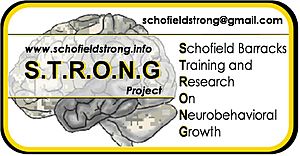Amishi Jha facts for kids
Quick facts for kids
Amishi Jha
|
|
|---|---|
 |
|
| Alma mater | University of California, University of Michigan |
| Known for | Cognitive neuroscience of attention, working memory, and mindfulness |
| Awards | Poptech Science and Public Fellowship Leader, Charles Ludwig Award for Distinguished Teaching and Dean's Award for Innovation in Teaching from the University of Pennsylvania |
| Scientific career | |
| Fields | Neuroscience, Psychology |
| Institutions | University of Miami |
Amishi Jha is a smart scientist who studies the brain. She is a professor of psychology at the University of Miami. Her work helps us understand how our brains pay attention, remember things, and stay calm.
Dr. Jha's research looks at how our brains control important skills. These skills include attention (focusing), working memory (holding information in mind), and mindfulness (being aware of the present moment). She uses special tools to see how the brain works. Her goal is to find ways to make our brains stronger and help us handle stress better.
She has shared her research at big events like the World Economic Forum. She even presented her findings to the Dalai Lama. Her work has been shown in many magazines and news stories.
Contents
Learning and Training
Dr. Jha studied psychology in college. She earned her first degree from the University of Michigan in 1993. Then, she got her PhD in psychology from the University of California-Davis in 1998.
After that, she did more training. From 1998 to 2001, she learned about Neuroimaging. This is a way to take pictures of the brain. She used a method called Functional MRI (fMRI) at Duke University.
Working as a Scientist
University of Pennsylvania
From 2002 to 2010, Dr. Jha was a professor. She worked at the University of Pennsylvania. She was part of the Center for Cognitive Neuroscience. This center studies how the brain thinks.
University of Miami
In 2010, she moved to the University of Miami. She became a professor in the Department of Psychology. At the University of Miami, she helped start a special group. It's called the Mindfulness Research and Practice Initiative. She helps lead the part that studies how mindfulness affects the brain.
Brain Research
Dr. Jha studies how our brains manage important tasks. She looks at how we pay attention and use our working memory. She uses tools like fMRI and electroencephalography (EEG). These tools help her see brain activity.
Her lab explores how mindfulness training can help. They want to see if it can make our attention stronger. They also check if it can lower stress and improve our mood. Dr. Jha was one of the first to show that mindfulness can change attention. She also showed it can protect working memory in stressful situations. This was especially true for soldiers.
Her research has two main goals:
- To understand how the brain performs important tasks.
- To find ways to make these brain functions better through training.
What She Found
Dr. Jha's research on mindfulness training shows many benefits. It helps improve both our thinking skills and our emotional health. She has found that the more time people spend practicing mindfulness, the more benefits they see.
Helping Soldiers
Soldiers often face very stressful situations. This stress can affect their mental health. It can make it harder for them to focus or make good decisions. Dr. Jha worked with Marines. They were getting ready to go to Iraq.
She offered them an 8-week mindfulness training course. She found that the more the Marines practiced mindfulness, the better their working memory became. Their mood also improved. This suggests that mindfulness can help people stay strong mentally. Even when they are in very tough situations.
Helping Teachers
Dr. Jha also studied elementary and high school teachers. She wanted to see if mindfulness training could help them. Teachers often feel a lot of stress from their jobs.
After an 8-week mindfulness course, teachers reported less stress. They also felt less tired from work. They had fewer signs of sadness or worry. Their working memory also got better. What's more, these improvements lasted for three months after the course ended. This shows that mindfulness can have long-lasting positive effects.
Helping Children
Mindfulness and other practices teach kids to control their attention. This is a very important skill for school and life. Dr. Jha studied how meditation training affects children's attention. She found that even kids as young as 13 improved their ability to stay alert.
The training also helped kids solve problems better. This means they could follow instructions more easily. These findings suggest that meditation training might even help kids do better in school.
In another study, Dr. Jha worked with kids in the juvenile justice system. She wanted to see if mindfulness could help them keep their attention strong. Kids who practiced mindfulness did not lose their focus. But kids who didn't practice mindfulness did. Dr. Jha believes that strong attention helps kids be more resilient. It also helps them make better choices and manage their behavior.
Awards and Recognition
Dr. Jha is a well-known speaker around the world. She has spoken at many important events. These include the World Economic Forum and the Aspen Institute. She talks about how to improve attention and protect our brains from stress.
Her work has been featured in many news articles. These include Miami Herald, The Washington Times, and Scientific American Mind.
She has also won several awards for her teaching and new ideas in science. In 2010, she was named a PopTech Science and Public Leadership Fellow. She also received awards from the University of Pennsylvania for her teaching.


